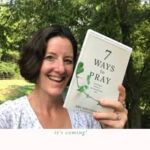“Falling into God” by Keren Dibbens-Wyatt: 7 Ways to Pray blog series
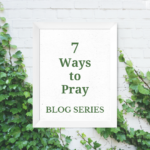
I simply adore Keren’s description of contemplative prayer. She shares how she’s come to practice centering prayer – focusing on God while giving herself to him. And how he meets her so lovingly in this practice. I love her grace-filled advice about what happens when the mind wanders too. I highly recommend her book, Recital of Love; she carries on the tradition of contemplation from friends such as Teresa of Avila, St. John of the Cross, and Julian of Norwich. It’s a gift for me to share this with you today!
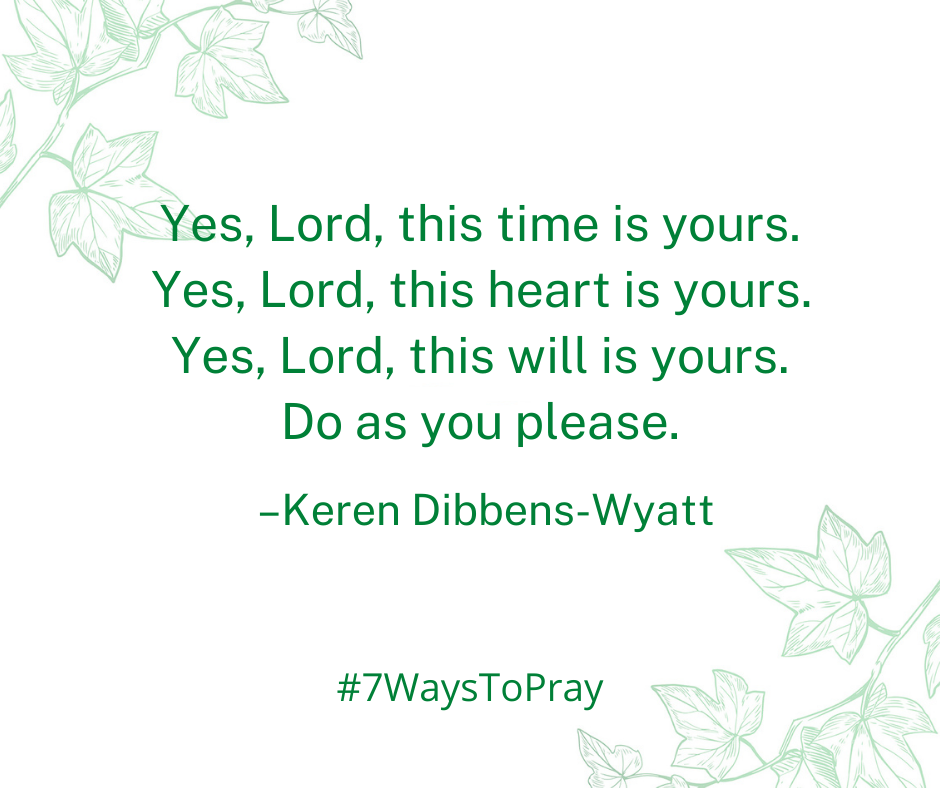
When I first began giving time to God as an offering, just ten minutes a day to begin with, I had no idea the practice of centering prayer existed, or that it might be Christian. I was simply sick and exhausted by my chronic illness and fed up with coming to God with torrents of words, requests and intercessions.
This didn’t seem like the deep or rich relationship that Jesus spoke of. When he asked the Father for something, it was clear that this was because of their relationship, not the sum of it. I wanted that. So, I closed the door, my eyes and my mouth (Matthew 6:6).
Centering prayer is essentially about staying still and silent, quieting your mind, letting your thoughts go and focusing on God. One thing many teachers recommend on beginning this practice is to have a prayer word to focus on, or something to bring you back to God when your mind wanders. Whilst this is fine, as is using the Jesus Prayer (Lord Jesus Christ, Son of God, have mercy on me, a sinner) to recalibrate, I would rather advise those starting out simply not to worry about what the mind is doing. It’s going to chatter away, especially to start with. We are not used to being still or quiet. We are not used to not being the focus.
As Martin Laird tells us in Into the Silent Land (the first book of his wonderful trilogy about contemplative prayer) to worry about all of that which is passing by is like a mountain being concerned with the weather. Clouds are gonna cloud. Just let them. When we give time to God, he is doing something wonderful whether we know it or not. As with all God things, not much if any of it is down to us. All he needs is your yes.
Yes, Lord, this time is yours. Yes, Lord, this heart is yours. Yes, Lord, this will is yours. Do as you please.
As my practice has developed, what I have discovered is that no effort beyond setting time aside is required. No concentration. It doesn’t make any difference how tightly I close my eyes. This is not a wishing well. Also, although I’m centering God in this process, his centre is everywhere and circumference is nowhere (as St Bonaventure described it). It makes more sense to me to consider centering as only the beginning of the process, as a gateway into contemplative prayer. It is more like falling than finding a centre. We fall into God.

A more helpful analogy for me is understanding the presence of God as what St. John of the Cross calls “a sea of love.” God is like water running beneath and through all things, and we let go of ourselves and drop into that deep, vibrant, moving flow.
In that contemplative place, we find connection, not only to God and his creation, but to the deepest parts of ourselves, and to others. It is like being part of a synaptic network. We can suddenly sense and see our place in the universe.
At the same time as we relinquish our egotism and see our smallness, we discover we are utterly beloved and held close to God’s heart. And that everyone else is too. That we are all together and one in his love. “He (Christ) is before all things, and in him all things hold together.” as Colossians 1:17 puts it. Or as Julian of Norwich wrote, “The love of God creates in us such a oneing that when it is truly seen, no person can separate themselves from another person.” It is wonderfully affirming to know.
Spending time in this place means I can be joyful about the success of others, I can hold their pain and suffering before God with more empathic grace, and I can also allow God to nurture my own giftings, knowing they are meant for sharing. In these deep places we are sometimes given visions, seeings, understandings, we might be led into intercession, or gently corrected on our perceptions or behaviours. These things are not so much sought as given. In that place, everything is grace. This deepening prayer connects all of us within that “oneing.”
The only thing I regret about giving God those ten minutes a day was that I didn’t begin sooner. And the only thing I would warn others embarking on contemplative prayer about is that you might love it and its source so much, that ten minutes will grow into far more.

Keren Dibbens-Wyatt is a chronically-ill contemplative, writer and artist. She has a passion for prayer, poetry, story and colour. Her writing features regularly in literary journals (Fathom, Amethyst Review, The Blue Nib) and on spiritual blogs (Contemplative Light, Godspace). She is the author of the book Recital of Love (Paraclete Press, 2020). Keren lives in England and suffers from M.E., which keeps her housebound and out of the trouble she would doubtless get into otherwise.
Order 7 Ways to Pray here, including in the US, UK, and Australia. You’ll also find lots of resources for small groups – videos and a leader’s guide – here.

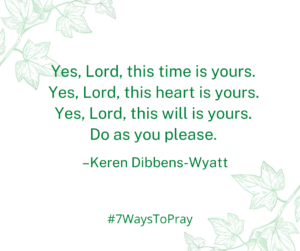




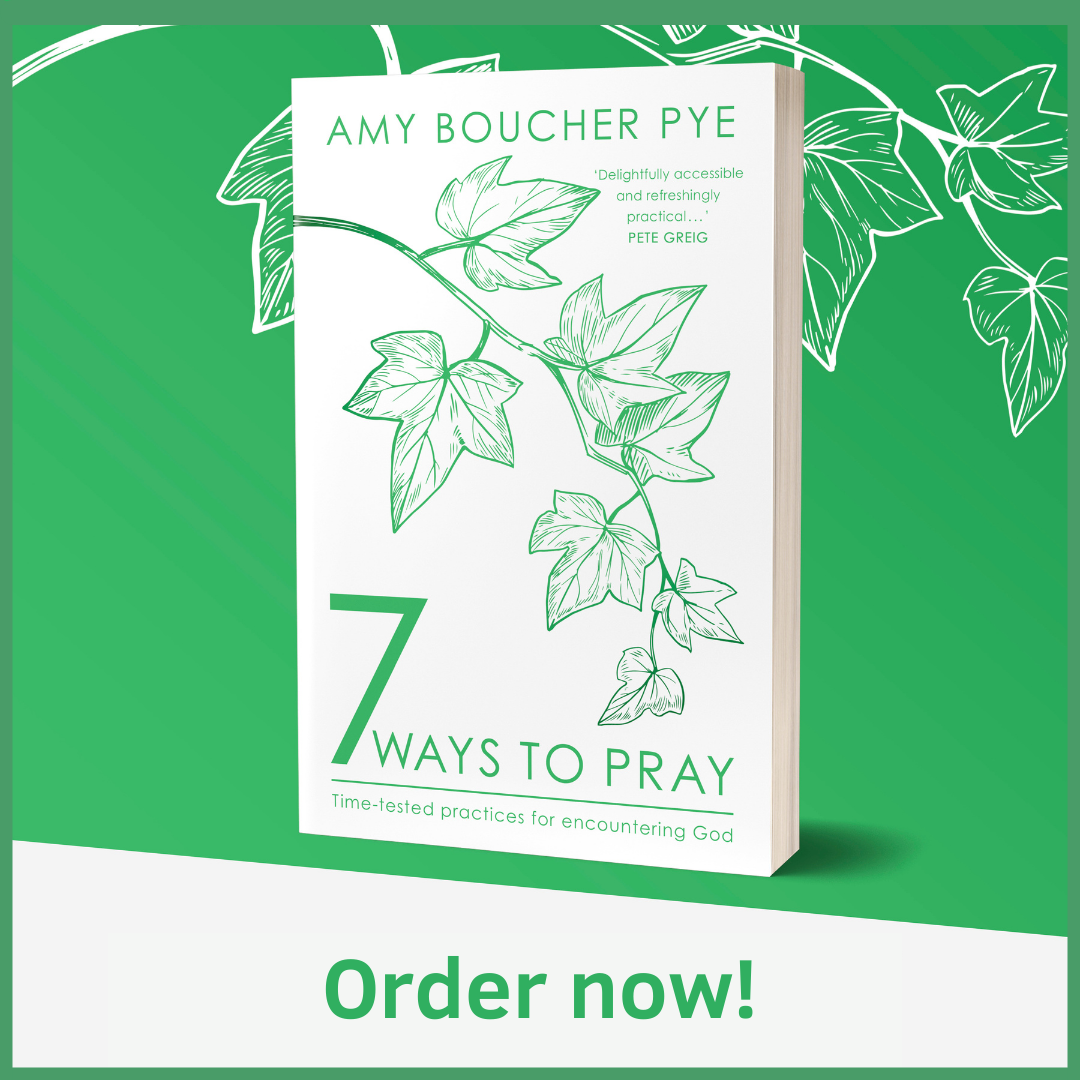

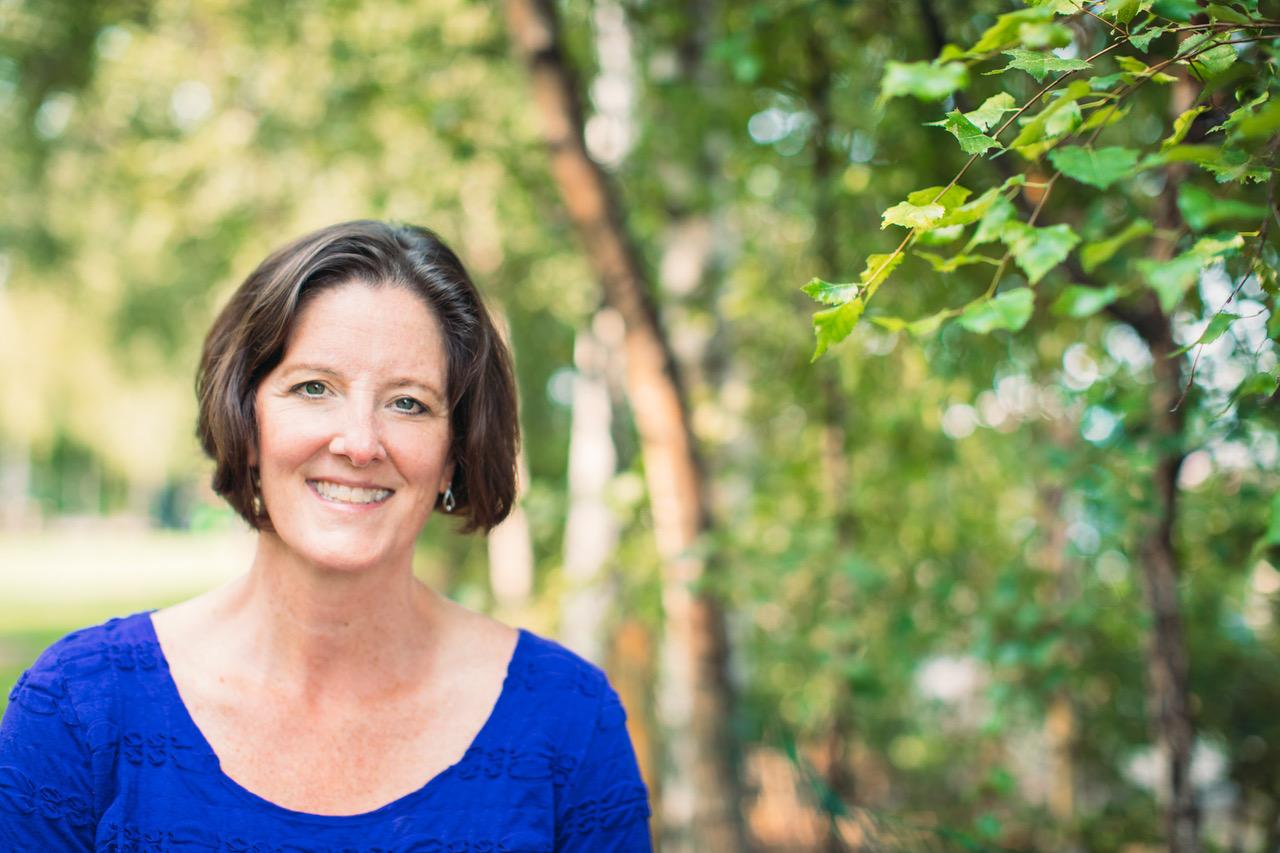 Hello!
Hello! 